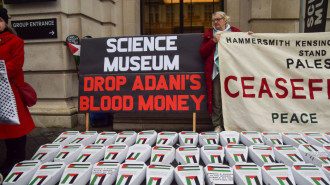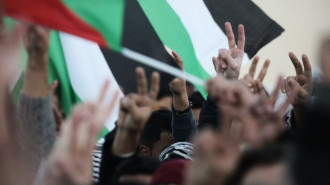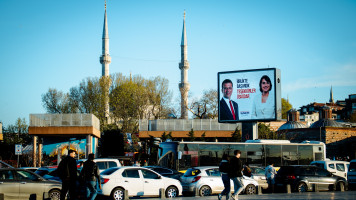
Partnerships in education research: A journey of unequal relations

The war in Syria resulted in one of the largest situations of mass displacement globally. Subsequently, there has been a proliferation in research supported by funding from states in the Global North (GN).
Among 74 projects funded by the UK’s Global Challenges Research Fund (GCRF), 15 named Lebanon as the country of focus. However, among them, only one was led by an institute in Lebanon.
The GCRF aims to ensure UK science takes the lead in addressing the problems faced by developing countries. Thus, research partnerships are promoted as an objective and a condition to obtain funds.
"Most postdoctoral funding and research time is allocated to staff in the Global North while Global South researchers are allocated the task of data collection and entry and the management of the logistics on the ground"
As researchers from the Global South (GS), in Lebanon, we have experienced and witnessed the influx of researchers from the Global North (GN) who found the opportunity for advancing their scholarship with the arrival of Syrian refugees and the deterioration of the economic and political situation in the country.
We often experienced a hit-and-run approach to fieldwork and fishing for projects by Western academics. We were targeted and solicited partially to legitimize the projects and experiments of scholars in GN.
Calls criticizing the unequal and exploitative nature of GS-GN partnerships emerged, amplified by the increasing calls to decolonize higher education institutions which peaked in the UK in 2015. Nonetheless, a 2020 review of academic articles published in the field of forced migration revealed the dominance of scholars from the GN on knowledge production in this field.
Locals and saviours
When scholars from the GN flooded our region, we scholars from the GS were suddenly appointed a new role: the ‘local.’ Our knowledge of the context was sought after to inform proposal development or access to the ‘field.’
Meanwhile, the ‘local’ was understood as a group of people with homogeneous characteristics of class, geography, religion, and citizenship.
Our role became restricted to fieldwork and data collection, or a case study at best. Knowledge production and theorization was not an arena where our local experience was highly needed.
We are expected to act as tokens for diversity and inclusion. One of our 'partners’ blatantly asked us to be present at a presentation because the donor is there. Others would script the content of our contribution or apologize for forgetting to include a budget for our time, leaving the option to us to either work for free or withdraw.
Activists and public academics
We were often deemed to be ‘too passionate,’ or biased or at best too sympathetic in contrast to the detached scientific scholar from GN. For us, our context is not merely a ‘field’ for mining data but a lived experience.
We have always identified ourselves as activists and public academics, although this is often used as a critique rather than a compliment. We resisted labels that have colonial legacies that see academics as detached from their context and surroundings.
While we grappled with our positionality as international academics, it struck us how ambivalent and unaware some of our colleagues from the GN were about their own positionality in relation to the contexts they study.
Their ambivalence was accompanied by a lack of interest in attempting to gain deeper understanding even from the comfort of their sofas by reading, watching, and listening to the wide and rich diversity of voices coming from this region. This did not undermine their ability to declare themselves as experts, significantly impacting global policy and thereby people’s lives.
"Knowledge production and theorization was not an arena where our local experience was highly needed"
Apolitical research
While the process of developing responses to what has been dubbed the ‘refugee crises' occur in a politicized sphere, most of the scholarly work on education of refugees is apolitical.
Refugee policies of countries in the GN have been motivated by racism and xenophobia, to pay host governments in the GS to keep refugees away from their borders. Yet, there was limited discussion.
While most global actors and humanitarian agencies focus on celebrating the increasing enrolment rates in primary education, efforts should also focus on addressing the structural and political environment surrounding education policymaking to ensure refugee retention.
|
Our cause, your career
There are certainly various motives and interests that shape the decision to engage in research that requires work with partners from/in the GS. In our experiences, these motives can be placed on a spectrum between cause and career.
Academics who are connected to the context of their research are driven by the urgency of the situation, the safety of their loved ones, and the aspiration of their community to thrive. As researchers from the GS, even when working as part of institutions in the GN, we felt that we are working from the margin.
We had to deal with precarious contracts, funding, and limited opportunities to share our voices. A quick glance at the budget allocations of many of these grants will reveal the skewed investment in developing the careers of scholars in the GN.
Most postdoctoral funding and research time is allocated to staff in the GN while GS researchers are allocated the task of data collection and entry and the management of the logistics on the ground. We found ourselves fighting an imposed hierarchy and efforts to silence our critical engagement as engaged scholars not to become detached and allegedly objective.
Towards more equitable partnerships
The problem is not about advancing one’s career, but rather a systematic issue whereby one’s academic career can only be built through silencing, objectification, extraction, and exploitation of others.
Scholars and higher education institutions from the GN need to push and challenge structural barriers impeding equitable partnership. These include donor conditions which limit the funding allocation to the GS, conference registration fees, etc., interrogating one’s positionality; that formulate one’s privileges or marginalization.
This article was equally contributed to, and written by, Dr. Mai Abu Moghli and Dr. Maha Shuayb.
Mai Abu Moghli is a researcher whose work focuses on critical approaches to human rights education, teacher professional development in crises and emergencies, refugee education and decolonising research and higher education.
Follow her on Twitter: @maimoghli
Maha Shuayb is the Director of the Centre for Lebanese Studies and Chair in education at the Faculty of Education at the University of Cambridge.
Follow her on Twitter: @MahaShuayb
![Children attend their first day of school in a refugee camp in the Idlib countryside [Getty Images]](/sites/default/files/styles/medium_16_9/public/2022-06/GettyImages-1235801172.jpg?h=199d8c1f&itok=Qr-woUL4)


